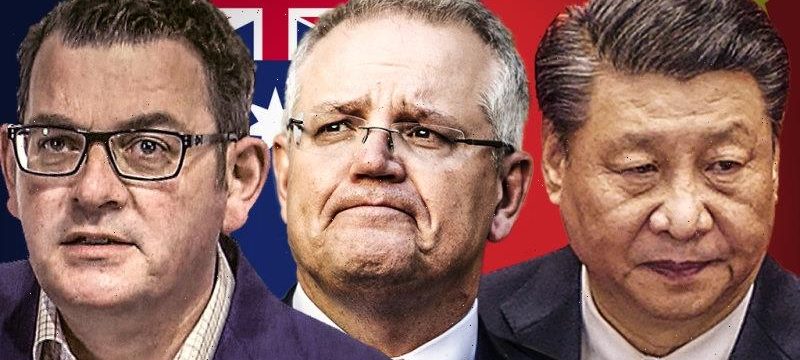Victoria’s $13 billion international education trade looks well set to withstand Australia’s deteriorating relationship with China, with students from that country continuing to apply in “surprisingly strong” numbers.
Australian National University higher education expert Andrew Norton said international student data suggested Chinese students were resistant to worsening relations between the two countries. Relations took a further hit on Wednesday when the federal government cancelled Victoria’s controversial Belt and Road deal with the rising superpower.
Reaction by Victoria’s business sector was muted on Thursday, with the state’s main employer group saying any impact on the local economy from the Morrison government’s move remained to be seen.
Wine exporters told The Age that tariffs imposed by China on Australian exports last year had done far more damage to their trade than the end of the Belt and Road arangement would.
The Chinese government was quick to react negatively to the news from Canberra, in a sign that relations could cool even further, but Professor Norton said the international student trade was proving resilient to the growing tensions.
“Poor relations between Australia and China may at the margins affect the decisions of students about where they study, but I think the evidence to date is the market hasn’t been strongly affected by geopolitical tensions, and so hopefully that will continue,” he said.
The Victorian Chamber of Commerce and Industry said it had little idea what was in the axed agreement, so forecasting the immediate effect on the economy was difficult.
“Like most Victorians, we have never seen the details of the Belt and Road agreement that the Victorian government signed, so it’s difficult to have an opinion without understanding the details,” chamber chief executive Paul Guerra said.
He said any local businesses worried about the impact of the decision should contact the chamber’s global trade services for assistance.
China was the largest export market for Victorian wine, accounting for $176 million of the state’s $380 million total export wine trade in 2019-2020, before Beijing imposed tariffs of up to 200 per cent on Australian wine last year.
Australian Grape and Wine chief executive Tony Battaglene said the relationship with China had already deteriorated some time ago and he doubted whether scrapping the Belt and Road deal would hurt much more.
“I don’t think it’s going to make relationships any worse than they were,” he said. “I don’t see it having a major impact.”
Alastair Symington, chief executive of health supplements giant Blackmores, which recently reported $77 million in half-yearly sales in China, said the news of the axing of the Victorian government’s Belt and Road deal would not have any impact on strategy, with the company facing a number of other unknowns including when Australia borders will reopen to students and tourists.
“I think any time there’s agreements that are cancelled, it creates a bit of uncertainty …for us, we would like to see more certainty in terms of trade agreements,” Mr Symington said.
The leading lobby group for international education also predicted Australia’s decision to cancel Victoria’s memorandum of understanding with China would have no impact on student numbers from that country.
“The Victorian government arrangement has been an anomaly and certainly to date Victoria has seen no net benefit by way of increased Chinese student numbers compared to other states in Australia, so there has been no enrolment dividend to date that Victoria could identify compared to Chinese enrolment numbers in other states,” International Education Association of Australia chief executive Phil Honeywood said.
Start your day informed
Our Morning Edition newsletter is a curated guide to the most important and interesting stories, analysis and insights. Sign up here.
Most Viewed in National
From our partners
Source: Read Full Article
